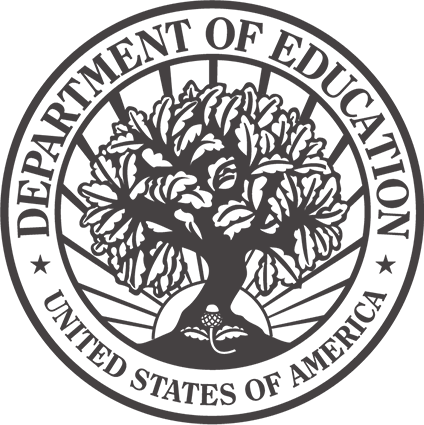Mental Health Professional Demonstration Grant (MHSP)

Key Date:
Anticipated Issue Date: March 2025
Anticipated Deadline: April 2025
Link
Program Priorities
This competition has three absolute priorities and three competitive preference priorities.
Absolute Priorities
- Absolute Priority 1: Expand Capacity of High-need LEAs: Projects that propose to expand the capacity of high-need LEAs in partnership with eligible IHEs to train school-based mental health services providers, with the goal of expanding the number of these professionals available to address the shortages of school-based mental health services providers in high-need schools.
- Absolute Priority 2: Applications From New Potential Grantees: The applicant does not, as of the deadline date for submission of applications, have an active grant, including through membership in a group application submitted under the program from which it seeks funds.
- Absolute Priority 3: Applications from Grantees that Are Not New Potential Grantees: The applicant has, as of the deadline date for submission of applications, an active grant, including through membership in a group application submitted under the program from which it seeks funds.
Competitive Preference Priorities
- Competitive Preference Priority 1: Increase the Number of Qualified School Based Mental Health Services Providers in High-Need LEAs Who Are from Diverse Backgrounds or from Communities Served by the High-Need LEAs (Up to 5 points): Projects that propose to increase the number of qualified school-based mental health services providers in high-need LEAs who are from diverse backgrounds or who are from communities served by the high-need LEAs.
- Competitive Preference Priority 2: Promote Inclusive Practices (Up to 5 points): Projects that propose to provide evidence-based pedagogical practices in mental health services provider preparation programs or professional development programs that are inclusive with regard to race, ethnicity, culture, language, disability, and for students who identify as LGBTQI+, and that prepare school-based mental health services providers to create culturally and linguistically inclusive and identity-safe environments for students when providing services.
Competitive Preference Priority 3: Partnerships with HBCUs, TCUs, or other MSIs (0 or 5 points): Applicants that propose to implement their projects by or in partnership with one or more of the following entities: (1) Historically Black Colleges and Universities (HBCUs), (2) Tribal Colleges and Universities (TCUs), or (3) Minority-Serving Institutions (MSIs).
Eligibility
High-need LEAs, SEAs on behalf of one or more high-need LEAs, and Institutions of Higher Education (IHEs). High-need LEA applicants and SEA applicants on behalf of one or more high-need LEAs must propose to work in partnership with an eligible IHE, which may include institutions that serve diverse learners such as an HBCU, TCU, or other MSI. Eligible IHE applicants must propose to work in partnership with one or more high-need LEAs or an SEA.
Eligible institutions of higher education are institutions of higher education that offers a program of study that leads to a master’s degree or other graduate degree: (a) in school psychology that prepares students in such program for a State credential as a school psychologist; (b) in school counseling that prepares students in such program for a State credential in school counseling; (c) in school social work that prepares students in such program for a State credential in school social work; (d) in another school-based mental health field that prepares students in such program for a State credential to deliver school-based mental health services; or (e) in any combination of study described in (a) through (d).
Competitive Preference Priority 3: Only institutions that the Department determined to be eligible through the FY 2024 process for eligible MSI designation (which includes HBCU and TCU designations), or which were granted a waiver under the process, may be considered eligible for this competitive preference priority.
Estimated Total Program Funding
$19M
Estimated Number of Awards
23-33
Anticipated Award Amount
Estimated Range of Awards: $400K-$1M per year over up to 5 years ($2M-$5M)
Estimated Average Size of Awards: $700K per year over up to 5 years (Up to $3.5M)
